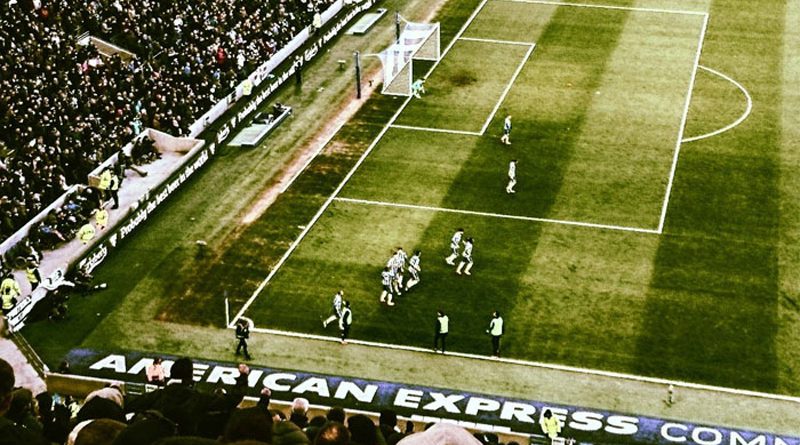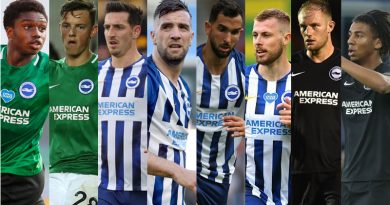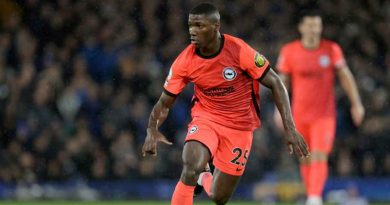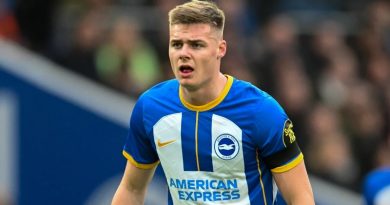How Brighton are becoming big in the United States
My earliest football allegiances were driven by my affinity for sharing a striking red carrot top with Alan Ball (Everton and Arsenal), and a pair of shocking purple Steve Heighway boots (Liverpool). But these were rendered inconsequential after my father took me to see Brighton v Chelsea in the 3rd round of the FA Cup in 1973.
Not even the antics of the Chelsea away supporters surging behind us to crush the fans at the pitch wall, nor the antics of Chopper Harris on the pitch could dim the fire that was lit in my soul for Brighton that day. Subsequent visits to the Goldstone Ground courtesy of a family friend further engrained the Albion in my psyche.
When Brighton secured promotion to the old Division One in my final year at school on the south coast – and despite being 11 miles from the Goldstone – I was one of a very few who supported the Seagulls. My peers were for Arsenal, Spurs, Liverpool, Man Utd – not really very different to today – and Aston Villa…
At university in the north of England, Albion’s top division status meant that although I was the only Seagulls fan in the entire university, at least my friends knew the club from the fixtures we played against their teams. This recognition was accentuated by our 1983 Cup Final appearance, Steve Foster’s headband and his brief England career (in that order).
Contrast that with the next 34 years of my football supporting life, when general knowledge and awareness of the Albion plummeted in direct relationship to their league position.
In that forlorn period, only sporadic cup games against the teams of my friends caused some commonality with them. Given the rarity of the fixtures and even rarer victories, they were never very happy occasions.
Occasional Championship skirmishes with Leicester City, who my best man supported, never had the panache of a full bodied top flight encounter.
My only solace was my uncle’s passionate support of Aldershot and, although they never have been fortunate enough to be at risk of a fall from grace on the pitch, arguably experiences were even worse as the Shots went out of business and reformed in non league.
By the time the day I never thought would come when the Seagulls made it back to the Premier League, part of the cache of the promotion was lost as by now I was in New York and removed from frequent contact from my footballing friends.
Whilst Premier League football had generated by then a reasonable following in the United States, it tended to focus on the big six.
Teams like Brighton, Leicester, Huddersfield Town and Norwich City were just names to the American viewers and teams that the big six played against.
There was no knowledge or empathy of the fabric and history of the graft those clubs had gone through to reach the lofty echelons of the top flight – and certainly no feeling of the anguish of the supporters for all those oh-so-nears and years of hurt.
So my celebrations in my New York office on that Monday when we secured promotion were greeted with polite indifference by my colleagues.
Being even further removed from my university mates meant the joy at being able to have something in common with them – Brighton joining the elite – was also rather devalued.
Aside from my father who relished in my joy for our elevation, most other reactions from football lovers were one of polite apology, offering sympathy in advance for the inescapable fact that we would be relegated a year later as a one season wonder.
NBC’s coverage – whilst extensive and complete – was even more dismissive of the club and their right to be in the same stratosphere as the big six, with whom they had a mutual symbiosis to drive their audience growth.
Clubs like Brighton were meant to be dismembered and spat out by the big six, as if they were a gladiatorial appetiser in the coliseum that is American TV.
Nothing sums this up better than NBC’s Fandome, a roving live gathering of supporters of Premier League teams which forms the cornerstone of certain live studio broadcasts.
Whilst it has representation from each club – including a Gully – it is again focused on perpetuating the indoctrination of would-be football newbies into supporting Manchester United, Manchester City, Arsenal, Liverpool, Chelsea or Spurs. Not Brighton or anyone outside the elite.
I was even more disappointed at people like Mark Lawrenson and his BBC punditry. With his history with the club, I thought he would at least be more sympathetic to us in his weekly predictions.
So damning did his reviews and predictions become that I felt even more ostracised from the nirvana I thought I would now be in with my team back in the top flight.
But this season something is changing. Social media sites like #bhafcstateside are beginning to build their own presence for the club here in the US and encourage a following of Americans for the Albion.
Maybe Leicester winning the Premier League in 2015-16 helped break the perceived notion that to support a winning team only meant a choice between six clubs.
Now others here are now reacting to the Seagulls and rather than the polite indifference of the past four years, beginning to recognise us as deserving of a place in the Premier League and not just seeing us as cannon fodder.
To cap it all off, I recently walked into the dog park in the centre of Manhattan, wearing my 2020-21 (aka 1983 remake) Albion home shirt. I was greeted by someone shouting: “I love the shirt!”.
The woman was the New York organiser for bhafcstateside who had been supporting the club for the last three years – she had even visited the Amex!
No longer am I feeing some form of football pariah. I am beginning to feel like my team belongs at the top table. As one of the Talksport pundits said during his summary of Brighton’s Carabao Cup win at Cardiff: “Something big might be happening on the South Coast.”
With virginal American supporters now beginning to gravitate to the Albion – a trend that of course results might accelerate as Americans above all love winners – something big is indeed happening on the South Coast.
And whilst I would love our club irrespective of where they are in the leagues or what people think, it does feel really good to have, as Americans say, that external validation.




